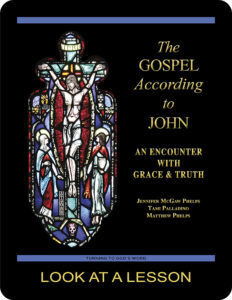unclean
 The Gospel According to Mark 7:2 (NABRE) describes Jesus being challenged because some of his followers are not following all the ritual cleanliness practices: “Some of his disciples ate their meals with unclean, that is, unwashed, hands.”
The Gospel According to Mark 7:2 (NABRE) describes Jesus being challenged because some of his followers are not following all the ritual cleanliness practices: “Some of his disciples ate their meals with unclean, that is, unwashed, hands.”
There’s an interesting contrast taking place here that’s lost in the translation. The Greek word translated as “unclean” is κοινός (koinos), a word that means “common.” In fact, the Greek dialect used in the New Testament, Koine, is named using this word. It’s a common Greek dialect that represented the merging of different regions in Greece. The Latin equivalent is being vulgar.
What’s interesting about this usage is that for Jews, the idea of being common or like everyone else would be directly opposed to being holy since language about holiness is at its root about being set apart. With this understanding, it’s interesting to look further at the Gospel passage and Jesus’ disagreement with the Pharisees. This is an argument not only about cleanliness but about holiness.
What does Jesus say it takes to be holy?
you also may like our study of the Gospel According to John
 The Gospel According to John: An Encounter with Grace & Truth, a 25-lesson Catholic Bible study with an imprimatur, examines the Fourth Gospel’s view of Jesus Christ as the Son of God, with special emphasis on the institution of the sacraments of the Church as the means by which Christians are purified and made holy. This recently revised study includes maps and additional commentary, and takes a closer look at the way in which Jesus relates to individual men and women. Click on the book’s cover to view a sample lesson.
The Gospel According to John: An Encounter with Grace & Truth, a 25-lesson Catholic Bible study with an imprimatur, examines the Fourth Gospel’s view of Jesus Christ as the Son of God, with special emphasis on the institution of the sacraments of the Church as the means by which Christians are purified and made holy. This recently revised study includes maps and additional commentary, and takes a closer look at the way in which Jesus relates to individual men and women. Click on the book’s cover to view a sample lesson.
 Click on the picture of the statue of Moses with horns (above) to learn more about Lost in Translation. A new entry is archived each Monday. Contact us to receive Lost in Translation by email every week. You may use any of the contact links on our website to ask Matthew a question.
Click on the picture of the statue of Moses with horns (above) to learn more about Lost in Translation. A new entry is archived each Monday. Contact us to receive Lost in Translation by email every week. You may use any of the contact links on our website to ask Matthew a question.
